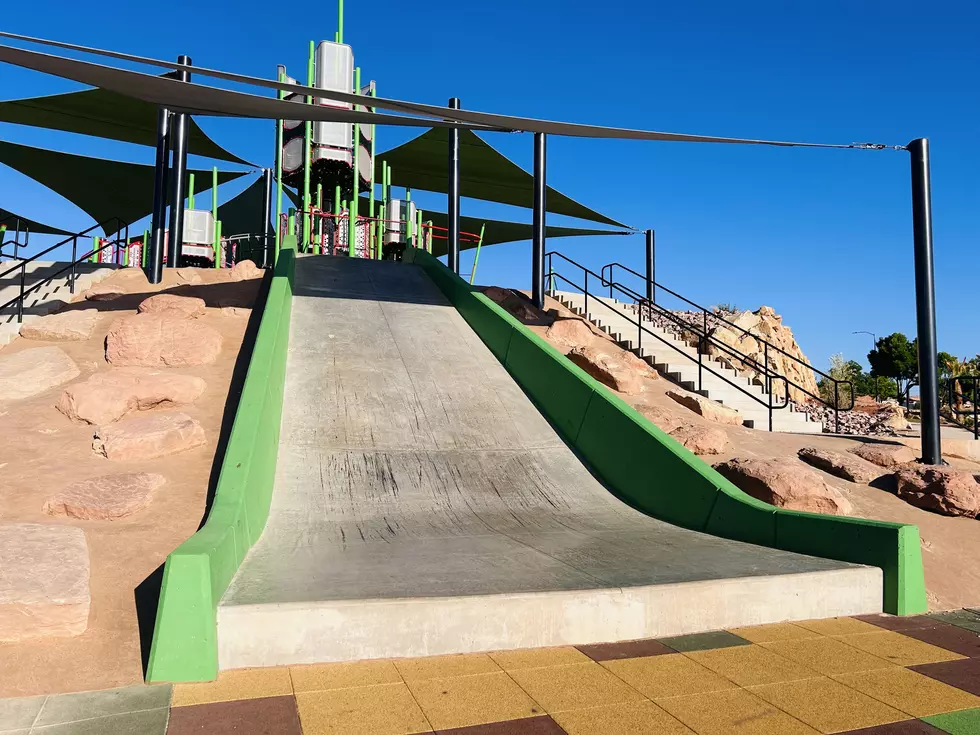
Explosive Pickles?! The Sport That’s Sweeping the Nation
It's the fastest growing participation sport in America, and it's not even close.
In just the last five years, Americans listing pickleball as one of their hobbies has grown from 3.1 million to 8.9 million -- nearly tripling in popularity in a short time span.
It's the "new" sport that's got parks and rec guys the nation over converting tennis courts to pickleball courts. The fact that it is growing quickly in popularity gives traction to the idea that pickleball is considered a "new" sport.
In all actuality, it's been around for nearly 60 years. From growingbolder.com:
For decades, pickleball was mostly a little-known recreational sport for older adults described by some as “the new shuffleboard.” And then the pandemic hit. Perfect for socially distanced competition, inexpensive to start and easy to learn, participation exploded in 2019 jumping 40% in just 2 years, according to a report from the Sports & Fitness Industry Association. The growth has been across the board: male and female, urban and rural, young and old, pure beginners and stars from other racquet sports.
Pickleball, named after the inventor's dog "Pickles," takes only minutes to learn and is incredibly fun, even for beginners.
Some fun facts about pickleball:
- Florida is rated as the top state for pickleball. Utah comes in at No. 3 on the national list.
- Of America's largest 94 cities, Overland Park, Kansas, was rated most pickleball friendly. Salt Lake City comes in at No. 2.
- Surprisingly, Seattle has the most pickleball courts per capita. The rainy northwestern city boasts 20.5 pickleball courts per 100,000 people. St. Petersburg, Fla., is second with 19.6 courts per 100K people and Lincoln, Neb., is third with 17.2 courts per 100K people.
- It's estimated that St. George, with about 100,000 residents, has more than 50 public courts.
- There are about 250,000 tennis courts and 44,000 pickleball courts of record in USA Pickleball's 11,000-site database — or about 17.6 pickleball courts per 100 tennis courts.
- The National Senior Games was way ahead of the curve when it comes to pickleball mania, adding the sport back in 2012. Of course, pickleball has been a big part of World Senior games, held here in St. George.
- The average age of the pickleball player continues to go down every year. In 2022, the average pickleballer was 34.8 years old.
- Little Valley has 24 current courts, but is currently constructing nine new courts and on most nights, they are all being used (also, a center "stadium" court is rumored to be included in the build).
- St. George City has a vibrant and active set of pickleball leagues, broken down by gender and age group, although the kids groups are the most popular, The city also offers clinics, private lessons and tournaments.
In a recent article on SilverSneakers.com, Lisa Fields offers these health benefits of playing pickleball:
Pickleball Benefit #1: You’ll Lower Your Risk of Heart Disease
A study in the International Journal of Research in Exercise Physiology found middle-aged and older adults who played one hour of pickleball three days per week for six weeks improved their blood pressure, cholesterol, and cardiorespiratory fitness levels.
“These positive changes to heart health are significant, as a large number of adults have elevated cholesterol levels, hypertension, or low cardiorespiratory endurance, which puts them at increased risk of cardiovascular disease,” says study author Lance Dalleck, Ph.D., an associate professor of exercise and sport science at Western Colorado University.
In addition to setting up a regular pickleball game, check out our guide to more simple lifestyle changes that can help lower your blood pressure.
Exercise in general is a proven mood booster — and pickleball is no exception. A study in Leisure Studies found older adults who played in pickleball tournaments had a lower risk of depression.
“I believe it makes older adults’ lives richer and happier,” says study author Jungsu Ryu, Ph.D., an assistant professor of sport management at Marshall University in Huntington, West Virginia. “Engaging seriously in playing pickleball may buffer any type of negative emotions that people have during transitions to retirement and later life.”
If tournaments aren’t for you, no problem. The important thing is the commitment to pickleball as serious leisure, or the continued pursuit of a sport or hobby so you gain special skills, knowledge, and experience.
Pickleball Benefit #3: You’ll Get Hooked on Exercise
Many older adults start playing pickleball because a friend or partner suggests they join them one day. Some may be skeptical when they arrive, but more often than not, they enjoy it enough to come back for more, Casper says.
Science offers one explanation: A study in the Journal of Aging and Physical Activity found people become loyal to the sport because it helps them meet their fitness goals and enhance social connections. It’s a two-for-one workout!
“Sometimes people are more willing to play a sport when it’s fun, and people report that playing pickleball is way more fun than going for a walk or going on the treadmill,” says Casper, the study author.
“If you were to spend 60 minutes in the gym,” he continues, “it usually feels like 60 minutes. But when you’re doing something you enjoy, like pickleball, where you typically have time to talk and laugh in the game, all of a sudden you’ve been playing for 60 minutes and you think, ‘Where did the time go?’”
Only about 20 percent of adults get the recommended amount of physical activity each week, according to the U.S. Department of Health and Human Services. That means a lot of people may need to find an activity they’ll stick to—and pickleball may be the ticket.
Pickleball Benefit #4: You’ll Socialize More—and Feel Less Lonely
Pickleball is a great social outlet. And that desire to connect with friends will keep you coming back again and again.
“There’s this fun aspect, which really ties into social support,” says Chris Gagliardi, a spokesperson for the American Council on Exercise.
“It’s not this individual journey, like going to the gym by yourself to walk on the treadmill,” he says. “You can play doubles, you can have a teammate, and someone is expecting you. For some people, it can be the only socializing they may have that week.”
“Because this is a sport with two people playing together, you have that engagement,” he says. “And people are so passionate about pickleball—they look for opportunities to show other people and share their enjoyment. That’s more so with pickleball than any other sport that I’ve studied.”
Plus, knowing that someone is depending on you may give you a greater sense of purpose and increase your devotion to the game even more.
“If you were my workout partner and you didn’t show up, I could still get my workout in,” Gagliardi says. “But in pickleball, the game couldn’t take place if you didn’t show up. You have a lot riding on it.”
Get along really well with your pickleball pals? Why not extend the outing with coffee or lunch afterward—or plan one of these fun friend dates?
Pickleball Benefit #5: You May Stay Independent Longer
Older adults who play pickleball regularly may improve their reflexes and balance, which can help you live independently for longer, Gagliardi says.
You may also improve your range of motion, which can help minimize arthritis symptoms that prevent you from performing everyday tasks with ease.
“As a result of not being physically active, you typically lose range of motion,” Gagliardi says. “If you’re doing something you enjoy, you’re more likely to do it.
“But also, with pickleball, you have to think about the strategy and the hand-eye coordination,” he explains. “If you’re sedentary, you’re not doing that at all.”
For more on the St. George City's approach to pickleball, click here.
Pickleball rules summary via usapickle.org.
Goosebumps and other bodily reactions, explained
More From KDXU 890 & 92.5









